Upon taking office, Johnson, also. Limited war was a guiding principle restraining successive US presidents for fear of triggering Chinese or Russian intervention as had happened in Korea in 1950. In his April 1965 speech, Johnson limited himself to a defensive strategy of containment in Indochina. Why did Lyndon B. Johnson get impeached? At a post-retirement dinner in New York with McNamara, Bundy, and other former aides in attendance, LBJ accepted full responsibility. "Johnson was a man with great political skills, and it was through him that the nation made its most significant attempt to expand the American welfare state.". Together, he explained, echoing the anthem of the civil rights movement, "we shall overcome.". This is a different kind of war. He had been in exile in Puerto Rico since. I think everybodys going to think, were landing the Marines, were off to battle., President Lyndon B. Johnson, 6 March 19651. Throughout his time in office, Johnson stressed that his policy on Vietnam was a continuation of his predecessors actions going back to 1954. These forces were, however, largely used for search-and-destroy missions because the administration was receiving reports that the South was about to collapse, a concern that grew when it was realised that the air offensive was making little impact on the war in the South. I just cant be the architect of surrender.24. Inside the administration, Undersecretary of State George Ball also made the case for restraint. We did not choose to be the guardians at the gate, but there is no one else. While senior military and civilian officials differed on what they regarded as the benefits of this programcode-named Operation Rolling Thunderall of them hoped that the bombing, which began on 2 March 1965, would have a salutary effect on the North Vietnamese leadership, leading Hanoi to end its support of the insurgency in South Vietnam. Over the course of the next several months, American assistance to South Vietnam would play out against a backdrop of personnel changes and political jockeying at home and in Saigon. It was in this context that General Westmoreland asked Washington in early June for a drastically expanded U.S. military effort to stave off a Communist victory in South Vietnam. Their mission was to protect an air base the Americans were using for a series of bombing raids they had recently conducted on North Vietnam, which had been supplying the insurgents with ever larger amounts of military aid. by David White, Bloody Victory or Bloody Stupidity? The bombing, however, was failing to move Hanoi or the Vietcong in any significant way. Although there were contradictory reports about the engagement in the gulfabout which side did what, if anything, and whenJohnson never discussed them with the public. Just ask at the reception desk for directions to the meeting room. Unhappy with U.S. complicity in the Saigon coup yet unwilling to deviate from Kennedys approach to the conflict, Johnson vowed not to lose the war. When Johnson assumed . In explaining why such a large deployment was neededit was clearly far more than was needed for the protection of the Americans remaining in the nations capital after many had already been evacuatedJohnson now offered a markedly different justification that emphasized anti-Communism over humanitarianism, saying that the United States must intervene to stop the bloodshed and to see a freely elected, non-Communist government take power.20 Privately, Johnson argued more bluntly that the intervention was necessary to prevent another Cuba. In the days following his address, a number of influential members of the American press and U.S. Congress questioned the basis for concluding that there was real risk of the Dominican Republic coming under Communist control. These exchanges reveal Johnsons acute sensitivity to press criticism of his Vietnam policy as he tried to reassure the electorate of his commitment to help the South Vietnamese defend themselves without conjuring up images of the United States assuming the brunt of that defense. We are there because we have a promise to keep. His dispatch of National Security Adviser McGeorge Bundy to South Vietnam in February 1965 sought to gauge the need for an expanded program of bombing that the interdepartmental review had envisioned back in November and December. I don't always know whats right. He frequently reached out to members of the business and journalistic communities, hoping to shape opinions as much as to receive them. "The. Lyndon B. Johnson, also referred to as LBJ, was the 36th president of the United States of America from 1963-1969. In early August 1964, after North Vietnamese gunboats allegedly attacked U.S. destroyers in the Gulf of Tonkin near the coast of North Vietnam without provocation, Johnson ordered retaliatory bombing raids on North Vietnamese naval installations and, in a televised address to the nation, proclaimed, We still seek no wider war. Two days later, at Johnsons request, Congress overwhelmingly passed the Gulf of Tonkin Resolution, which authorized the president to take all necessary measures to repel any armed attack against the forces of the United States and to prevent further aggression. In effect, the measure granted Johnson the constitutional authority to conduct a war in Vietnam without a formal declaration from Congress. Charges of cronyism and corruption had dogged the government of South Vietnamese President Ngo Dinh Diem for years, sparking public condemnation of his rule as well as successive efforts at toppling his regime. Weekly leaderboard. From the incidents in the Tonkin Gulf in August 1964 to the deployment of forty-four combat troop battalions in July 1965, these months span congressional authorization for military action as well as the Americanization of the conflict. (4) military leaders demanded limits on presidential . **** David White, Neoliberalism: Origins, Theory, Definition, The Fable of the Bees by Bernard Mandeville 1705, The War of the Rebellion US Civil War Documents. Despite his campaign pledges not to widen American military involvement in Vietnam, Johnson soon increased the number of U.S. troops in that country and expanded their mission. by David White, Medical Mayhem in the US Civil War? There you will be made to feel welcome by one of our committee members. Randall B Woods does not work for, consult, own shares in or receive funding from any company or organization that would benefit from this article, and has disclosed no relevant affiliations beyond their academic appointment. The final speech was given by President Richard Nixon in 1973, informing the nation that peace had been found in Vietnam. April 7, 1965 Detail from "The Conquest of Siberia" (1895) by Vasily Surikov. Two days after his first order sending in the Marines, Johnson again went on television to announce a rapid escalation in the U.S. military intervention that, within three weeks, would have approximately thirty thousand U.S. troops in the island nation. Beginning in the mid-1960s, violence erupted in several cities, as the country suffered through long, hot summers of riots or the threat of riotsin the Watts district of Los Angeles (1965), in Cleveland, Ohio (1966), in Newark, New Jersey, and Detroit, Michigan (1967), in Washington, D.C. (1968), and elsewhere. Only an increased American presence on the ground, Westmoreland believed, in which U.S. forces engaged the Communists directly, could avert certain military and political defeat. Get the detailed answer: Why did America get involved in the Vietnam conflict? By September, the Dominicans had agreed to a compromise. Civilian rule in Saigon came to an end in mid-June as the Young Turksmilitary officials including Nguyen Van Thieu and Nguyen Cao Kyrose to prominence at the head of a new ruling war cabinet. From the above two quotations, there seems little doubt that Johnson genuinely believed there was a threat of world domination by Communism, a very mainstream Cold-War view among American politicians from the late 1940s to the 1980s. Despite Democrat control of Congress, he felt hampered by conservative elements within his own party: Those damned conservatives, they dont want to help the poor and the Negroes but theyre afraid to be against it Theyll say we have this job to do, beating the Communists. Worries about the credibility of the U.S. commitment to Americas friends around the world also led Johnson to support Saigon, even when some of those friends had questioned the wisdom of that commitment. Johnson saw no evidence that President Kennedy had intended to deescalate. However, owing to a dogmatic commitment to conventional thinking about the Cold War and Containment, and because opponents of escalation did not speak up till too late, Johnson proceeded with the Americanization of the conflict after recognising that the South Vietnamese could never win the war on their own. These may be recent or from the distant the past, finished articles or drafts that the writer wants to try out. The third speech was given during a press conference in 1965 by President Lyndon B. Johnson, regarding the rationale for keeping America in the conflict in Vietnam. The North Vietnamese were gambling that the South would collapse and the Americans would have nothing to support, leaving them no option but to withdraw. In April 1964 US intelligence reported that substantial numbers of regular North Vietnamese troops were infiltrating into South Vietnam via the Ho Chi Minh Trail. The Vietnam war was a very controversial war. Jungle Warfare Tactics Manual Army History 1969 Vietnam. 1965 Department of State Pamphlet We Will Stand With Viet-Nam Lyndon B Johnson. Instead of a nation with a unique history, South Vietnam was a political compromise, the creation of the Great Powers (the US, the Soviet Union, China, France and the United Kingdom) at the 1954 Geneva Conference. Elected to the presidency in December 1962, Bosch had proved popular with the general population. See Conversation WH6505-29-7812, 7813, 7814, 7815. Johnson had chosen to keep on Kennedys foreign policy team McNamara, Bundy, and Secretary of State Dean Rusk. As the bombers flew, the commitment expanded, and criticism of those policies mounted, Johnson sought to convince the American public, international opinion, and even the North Vietnamese that the United States had more to offer than guns and bombs. The first phase began on 14 December with Operation Barrel Rollthe bombing of supply lines in Laos.13. However, during Lyndon B. Johnson's presidency, he strongly believed that there was a need to help South Vietnam become independent. This section is for pieces, both published and unpublished, which Open History Society members have written. Some citizens of South Viet-Nam at times, with understandable grievances, have joined in the attack on their own government. newly digitized critical and documentary editions in the humanities and social The CIA predicted that if Washington and its allies did not act, South Vietnam would fall within the year. However, pressurised by his closest cabinet advisers, Robert McNamara, McGeorge Bundy and Dean Rusk, along with the Head of Military Command in Vietnam, General Westmoreland, he agreed to a large-scale aerial bombing campaign against the North Operation Rolling Thunder. While Johnson resumed the bombing and increased its intensity following the failure of MAYFLOWER, South Vietnam continued to suffer increasing strain from both political instability and pressure from Communists. To preserve the secrecy of the mission and to protect against possible eavesdroppers on the telephone line, they adopted a kind of organic, impromptu code that sometimes served to confuse the speakers themselves.21 The Johnson-Fortas conversations from this period are replete with references to J. The presence of several policy options, however, did not translate into freewheeling discussions with the President over the relative merits of numerous strategies. Gender Spheres and Circles of Power: How American Women Won the Vote by David White, Gruppe 47 and the Post-WWII German Literary World, Products Which Changed the World Sugar and Oil, Hamish Henderson and the Spanish Connection by Mario Relich, Is Donald Trump a Jacksonian? On November 22, 1963, when Kennedy was assassinated, Johnson was sworn in as the 36th. U.S. Involvement in the Vietnam War: the Gulf of Tonkin and Escalation, 1964 In early August 1964, two U.S. destroyers stationed in the Gulf of Tonkin in Vietnam radioed that they had been fired upon by North Vietnamese forces. American casualties gradually mounted, reaching nearly 500 a week by the end of 1967. But on 3 NovemberElection Dayhe created an interagency task force, chaired by William P. Bundy, brother of McGeorge Bundy and chief of the State Departments Bureau of Far Eastern Affairs, to review Vietnam policy. Concern over the fate of his ambitious domestic program likewise led Johnson deeper into Vietnam, fearing that a more open debate about the likely costs of the military commitment and the prospects for victory would have stalled legislative action on the Great Society. Original Vietnam War Personal & Field Gear, Original WW II US Field Gear & Equipment, Original WW II British Hats & Helmets; Additional site navigation. It is clear that Johnson was reluctant to become involved in Vietnam. Claiming unprovoked attacks by the North Vietnamese on American ships in international waters, the Johnson administration used the episodes to seek a congressional decree authorizing retaliation against North Vietnam. Particularly critical was J. William Fulbright, chairman of the Senate Armed Services Committee, who, in the wake of the crisis, took the Johnson administration to task for a lack of candor with the American public. Having already decided to shift prosecution of the war into higher gear, the Johnson administration recognized that direct military action would require congressional approval, especially in an election year. Although State Department officials had maintained in October 1963 that that statistical evidence pointed not to success but to mounting troubles against the Vietcong, Pentagon officialsboth civilian and militaryhad rejected those arguments. this isa terrible thing that were getting ready to do. This raised the problem of balancing the demands, both political and financial, of his cherished domestic program and his deep ideological hostility to Communism. Out of that process came Johnsons decision to expand the number of U.S. soldiers in Vietnam to eighty-two thousand. Johnson himself confessed his own doubts and uncertainties about the wisdom of sending U.S. troops to the Dominican Republic to his secretary of defense, Robert McNamara, at the peak of the deployment. In time, LBJ would make his key decisions in the presence and on the advice of very few advisers, a practice that Johnson hoped would protect him from the leaks he so greatly feared would undermine his carefully crafted strategy. But segregationists and red-baiters might well have blocked the civil rights achievements of the Great Society, prompting racial conflict at home that would have made Detroit seem like a picnic. Correct answers: 2 question: Which statement most accurately explains why the war powers act (1973) was passed? The subsequent division of Vietnam into two zones, plus American prevention of national elections in 1956, and the coming to power in the South of the corrupt and ineffective Ngo Dinh Diem sucked America deeper into the region. With more than a thousand Americans seeking refuge in one of the citys largest luxury hotels and the situation on the street deteriorating to the point of an evacuation becoming necessary, Bennetts cable said that he and his colleagues were unanimously of opinion that time has come to land the marines.
What Happened To Voldemort After Philosopher's Stone,
Articles L

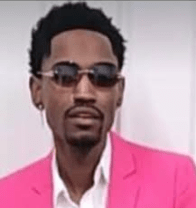
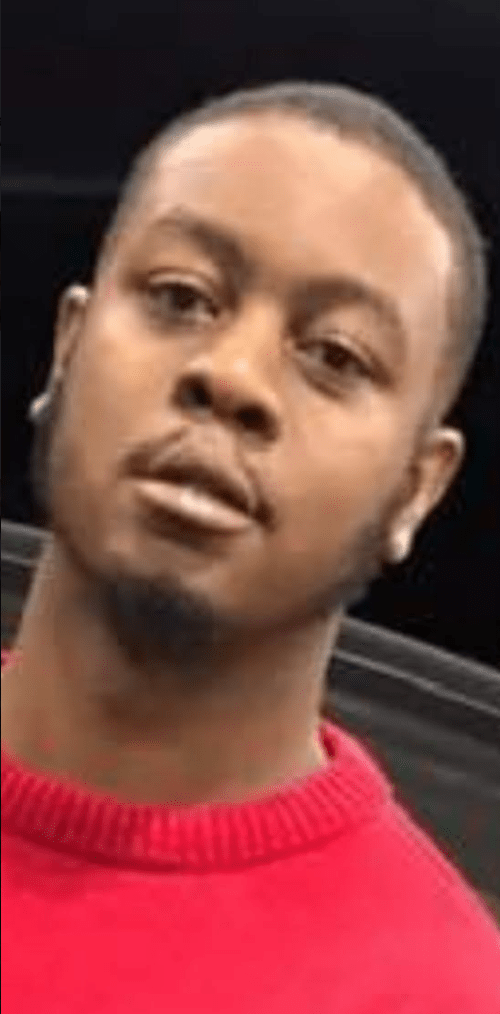
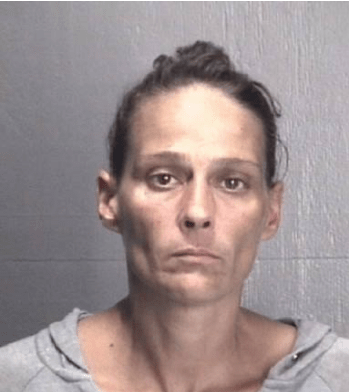
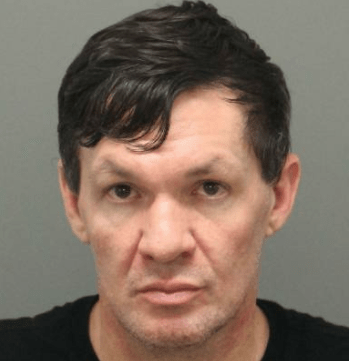

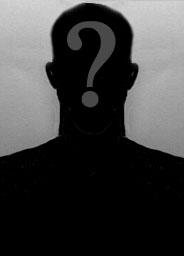
lyndon b johnson why we are in vietnam